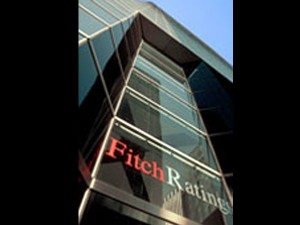Fitch hints at ratings upgrade soon

In a report released Tuesday, Jan. 22, 2013, Fitch hinted at a ratings upgrade for the Philippines soon, noting that the debt burden of the Philippine government has declined over the years and was now comparable to countries enjoying investment grade.
MANILA, Philippines—International credit watchdog Fitch Ratings has cited the much-improved debt profile of the Philippines and public-sector reforms that were helping boost its credit-worthiness.
In a report released Tuesday, Fitch hinted at a ratings upgrade for the country soon, noting that the debt burden of the Philippine government has declined over the years and was now comparable to countries enjoying investment grade.
“The Philippines’ public finances have become less of a drag on the sovereign credit profile,” it said.
The credit watchdog estimated that the debt of the Philippine government as a percentage of GDP fell to just 40.3 percent by the end of 2012. This peaked at 74 percent in 2004 but has declined since then with the implementation of measures to increase revenues and rationalize spending.
Fitch currently assigns the Philippines a rating of BB+, which is a notch below investment grade.
But while the Philippines’ debt burden has improved significantly, Fitch said there was room for improvement as far as collection of taxes and other revenues was concerned.
It noted that revenues as a percentage of GDP stood at 18.4 percent last year, which was below the median of 27 percent for countries with ratings in the BB level and the 34 percent for countries with ratings in the BBB category (the category for minimum investment ratings).
Nonetheless, Fitch said the recently enacted law raising excise taxes on cigarettes on alcohol was expected to help improve the revenue-to-GDP ratio.
It also said the Aquino administration’s fiscal policies were deemed prudent and supportive of economic growth.
“The Aquino administration’s efforts to improve the quality and effectiveness of public expenditures are seen as supportive. Improved fiscal transparency and reduced corruption leakages could help deliver longer-term benefits to the economy and address weaknesses elsewhere in the sovereign credit profile,” Fitch said.
Fitch likewise commended the debt-management strategies implemented by fiscal authorities for helping lengthen the average maturity of the Philippine government’s debts and reducing the cost of borrowing. Some of the strategies included debt swaps and bond buybacks.
“The authorities’ efforts to improve fiscal management on a more technical level, such as lengthening the maturity profile and increasing the reliance on domestic issuance, also support the sustainability of the public finances and have complemented ongoing improvements in the institutional framework,” Fitch said.
Rating firms Moody’s Investors Service and Standard & Poor’s also rate the Philippines a notch below investment grade.
